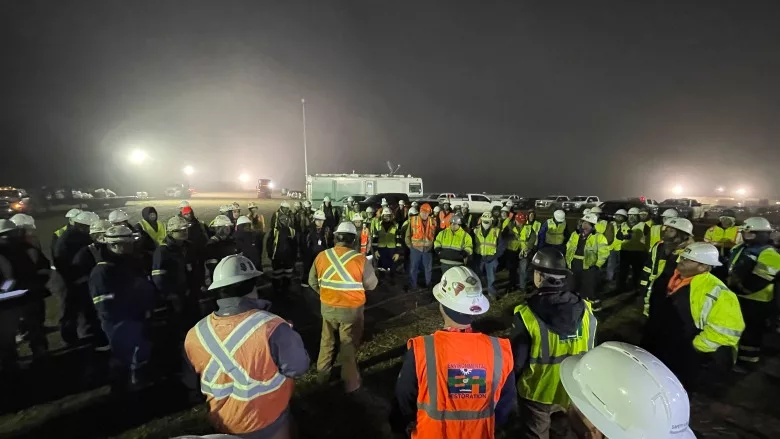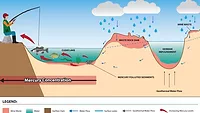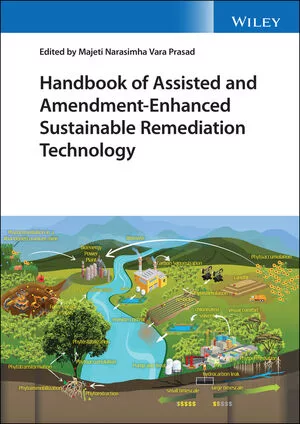Cleanup underway after Keystone Pipeline spill in Kansas
CBS Evening News reports that remediation efforts will likely take years, owing to the tar sands-derived crude oil Keystone transports.

The largest pipeline rupture in America in a decade occurred on Dec. 7, impacting pastureland and spilling into a creek in Kansas about 150 miles northwest of Kansas City. The rupture occurred in Canada-based TC Energy's Keystone Pipeline, which transports crude oil extracted from tar sands. The company estimates it released 14,000 barrels before shutting down the stream.
Previous Keystone ruptures were resolved within weeks, allowing the pipeline to resume flows, though this is the first time a rupture on the Keystone pipeline reached a waterway and it may take longer to resume operations.
In an interview with CBS Evening News, environmentalist Bill McKibben notes that tar sands crude oil requires more effort to remediate than other forms of crude. He says the remediation process will likely take years and cost "many millions of dollars before it's even close to being remediated."
The following is an update TC Energy issued on Dec. 10:
TC Energy continues to progress our response efforts in Washington County, Kansas. We have entered Unified Command with the U.S. Environmental Protection Agency (EPA) and continue to work in collaboration with the Pipeline and Hazardous Materials Safety Association (PHMSA) and the Kansas Department of Health and Environment (KDHE).
We remain focused on the following response and recovery activities, including:
- A dedicated workforce exceeding 250 personnel, including third-party environmental specialists.
- The product remains contained and multiple vacuum trucks, booms, and additional resources are onsite as we continue the recovery process.
- Repair planning is also underway, as are shoreline assessments.
- Continuous air quality monitoring has been deployed and, at this time, there is no indication of adverse health or public concerns.
Additionally, crews are beginning preparations for forecasted rain beginning Monday. We continue to work closely with landowners, the community, and local, state and federal regulators. Additionally, we are in discussion with the Tribal Nations and will welcome a Tribal representative onsite to monitor the progress.
As always, the health and safety of our onsite staff and personnel, our community neighbors, and mitigating risk to the environment remains our primary focus. We are working with local and state environmental agencies to develop incident-specific Wildlife Management Plans, including specialists to care for impacted wildlife.
We appreciate the patience and collaboration of the surrounding community and partner agencies for their support in responding to this incident. We recognize this is concerning to the community and commit that we will continue our response until we have fully remediated the site.
Our teams continue to actively investigate the cause of the incident. We have not confirmed a timeline for re-start and will only resume service when it is safe to do so, and with the approval of the regulator.
To follow along for more updates, check TC Energy's webpage.



.webp?height=200&t=1668433148&width=200)

